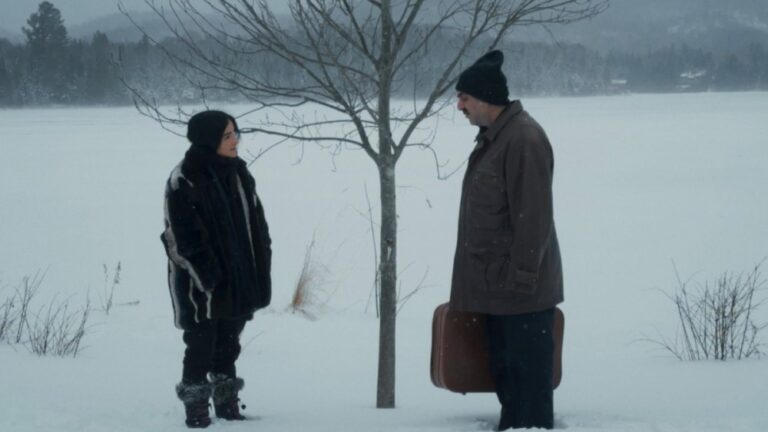Meet Abdolreza Kahani, the Iranian filmmaker who has embraced the art of “solo cinema,” and if you think that means he’s a lonely genius, think again! He’s the whole crew—director, producer, writer, editor, and even the director of photography—often armed with nothing more than an iPhone and a microphone. Who needs a budget when you can shoot a noir drama—complete with winter frost and existential dread—from the comfort of your own frosty Canadian exile? His latest flick, “Mortician,” showcases a rather ironic take on human connections, laden with melancholy as we drift through our frozen lives like, well, lost Iranian expats.
Kahani is like that indie band you loved back in the day who mysteriously disappeared—only to re-emerge with a comeback album that wins awards. After a few years of quietly rolling around in the shadows, “Mortician” marks his return to the spotlight, winning the top prize at the Edinburgh Film Festival. The £50,000 prize is a pretty tidy sum for someone who seems to thrive on DIY aesthetics, perhaps funding his next film about a guy who washes corpses for a living (oh wait, he already did that). It seems Kahani is out to prove that scrappy filmmaking can be both poignant and powerful, packing an emotional punch that could knock you off your feet faster than a snowstorm in Canada.
In “Mortician,” we reunite with Nima Sadr, last seen crying in “A Shrine,” where he established himself as the go-to face for lugubrious expressions. In this film, he’s Mojtaba, a former Tehranite navigating the ups and downs of life in a wintry, undistinguished Canadian city—because, really, who wants to be distinguished while washing deceased bodies? Not to mention his foray into corpse cosmetology isn’t exactly lucrative, especially after his funeral company decides to close up shop—news that calls for a funeral of its own.]
Desperate for a new gig, Mojtaba receives an unusual offer from Jana, a pop singer-turned-misunderstood-heroine seeking to turn her demise into a statement. She insists she *loves* life—just not enough to want to live it, hinting that making herself a “beautiful corpse” might be the most radical act left for her. One has to admire her commitment to performance art in the age of social media, especially when the government is always watching from the rafters.
Their unusual partnership unfolds with dark humor and existential musings that veer both touching and absurd. Jana declares, “People aren’t like you—they’re complex,” as if she’s just solved the mystery of life and Mojtaba takes it in stride, likely reflecting on whether “complex” includes how to arrange a funeral party on a budget. The insights into their fractured identities reveal how they’re both grappling with the ghosts of their homeland. But don’t you worry; their budding friendship cleverly avoids mirroring a romantic comedy—after all, they’re more like two trains colliding melodramatically in the snowy Canadian tracks.
Meanwhile, the supporting cast of quirky ex-Iranians provides a rich backdrop. Each interaction Mojtaba has is like attending a bizarre family reunion—colorful but uncomfortable, a portrait of the fragmented diaspora. Yet at the film’s core lies this surprisingly intimate duet, exploring the thin line between life and death and the messiness of human connection, framed beautifully in the monochrome of frozen landscapes, shot with Kahani’s minimalistic approach that somehow feels deeply thought-provoking.
And just when you think you’ve got the movie figured out, the closing credits roll—not just a list of names but Kahani’s heartfelt manifesto. In a twist of irony worthy of a Fellowship of the Ring marathon, he thanks himself “for refusing to take money from the government of Iran.” It’s possibly the ultimate artistic flex, like claiming freedom of expression while simultaneously challenging your own narrative. With “Mortician,” Sudanese may be uniquely alone in their struggles, yet ultimately united spirits—yes, a quirky take on existentialism served cold and with a side of irony.

